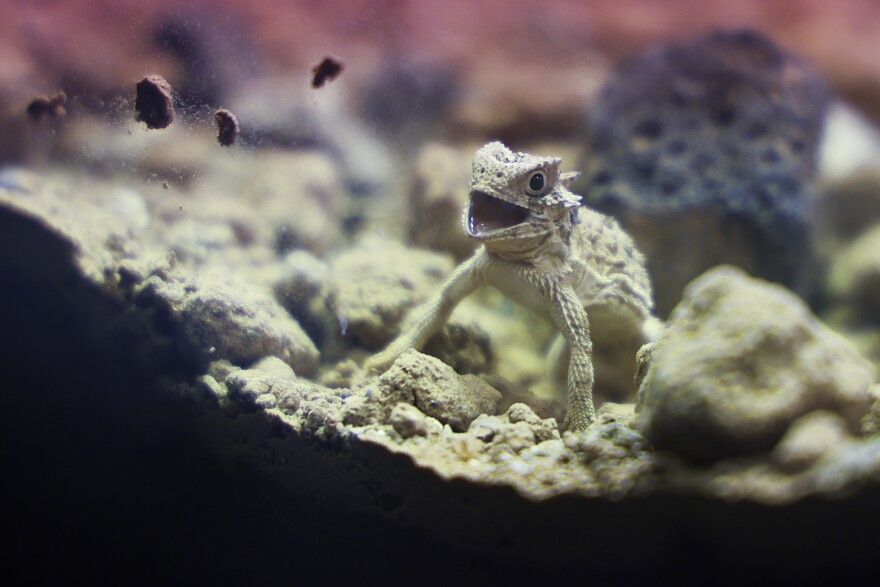Whether you refer to them as horned frogs, horny toads or by their official name — the Texas horned lizard — there’s a chance you may know these native reptiles.
Your grandkids, however, might not.
The future of the Texas horned lizard is threatened by climate change and waning biodiversity. Overdevelopment and habitat loss, paired with an increase in invasive species, is pushing out not only the lizards but the ants and grasses they rely on for survival.
Conservationists at the Dallas Zoo at the Texas Parks and Wildlife Department want to make sure they stick around.
Yfat Yossifor
/
KERA
Tommy Owens, the zoo’s manager of Ectotherms, is working with a team of conservationists to raise lizards at the zoo before releasing them into protected wildlands where they’re likely to survive.
Owens and his team gather select female horned lizards from densely populated areas like the Rolling Plains Quail Research Ranch. Once the females lay their eggs, they’re transferred into an incubator in which Owens can control the temperature.
The temperature at which they’re incubated determines their sex, Owens said.
Yfat Yossifor
/
KERA
“If global warming continues at a substantial rate, eventually we would end up with all one gender,” he said. “Or even worse, at some point, the incubation would be too warm for them, and they won’t survive.”
After the lizards hatch, his team releases them back into the wild where he said he hopes abundant ants and grasses will help them thrive for years to come.
This October, Owens’ team released 44 lizards into the wild. Altogether, 195 lizards have been released just this year, according to the zoo — more releases in one year than all other years combined.
Owens hopes the momentum continues for years to come.
“It would be really sad if this decline continues and they become more of a mythological thing,” he said.
